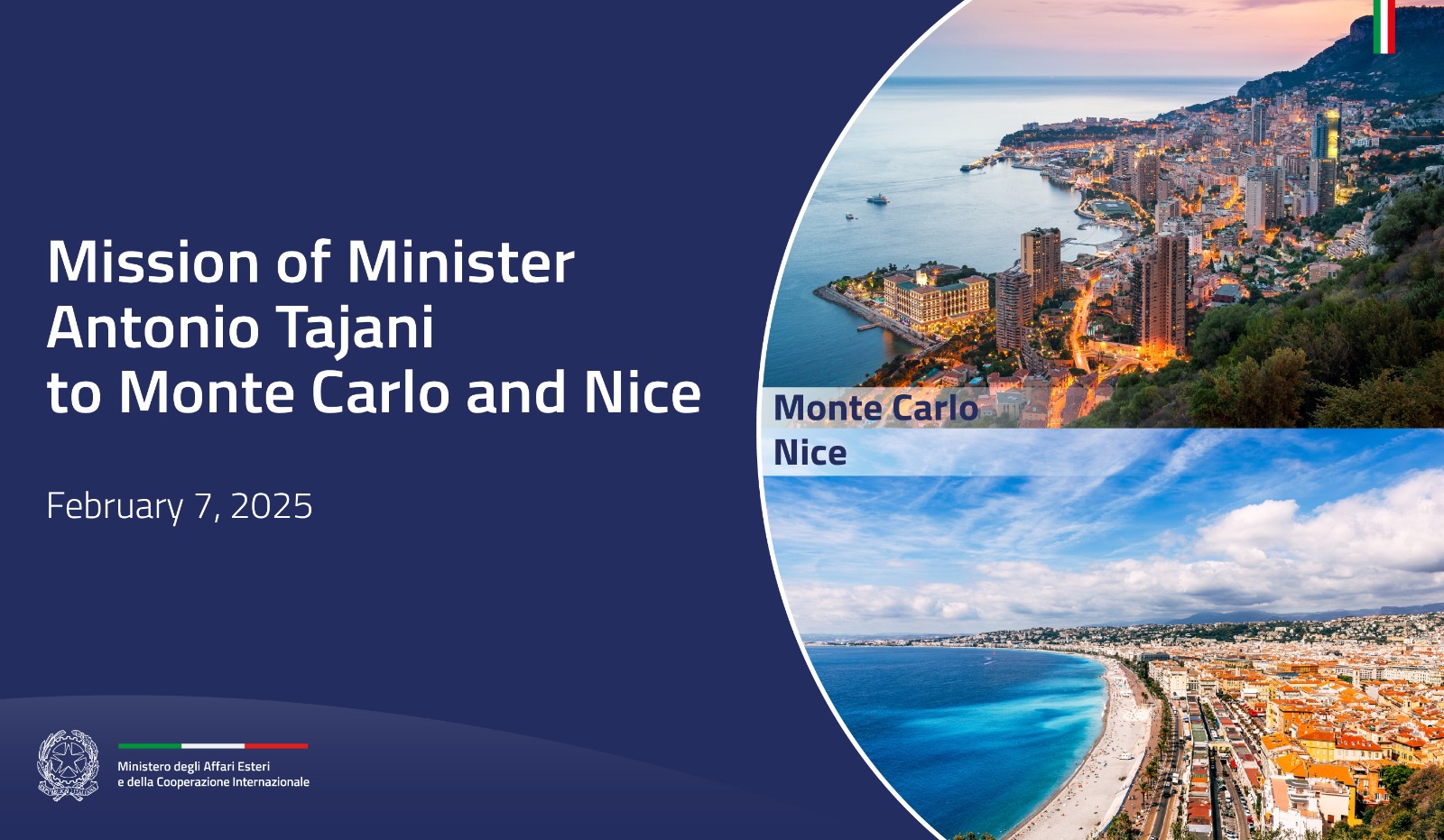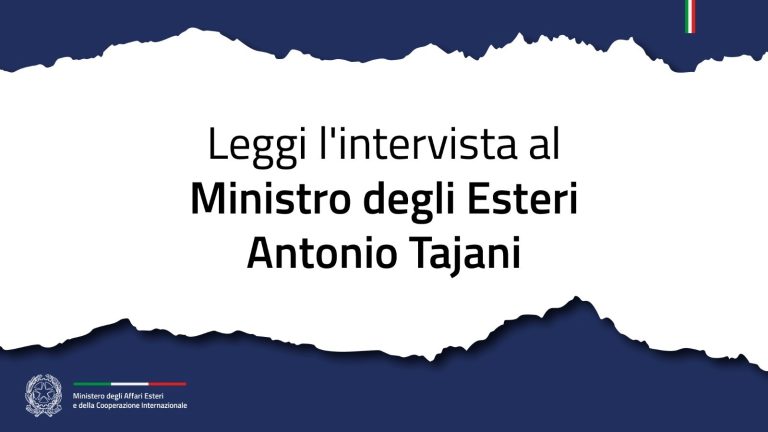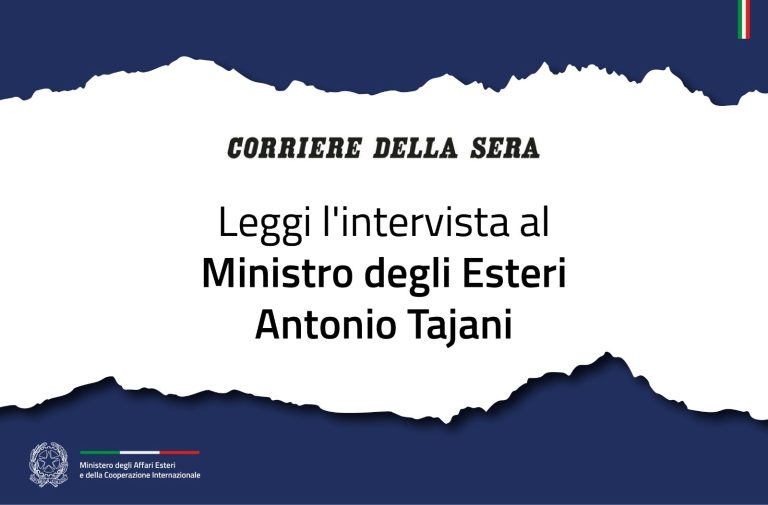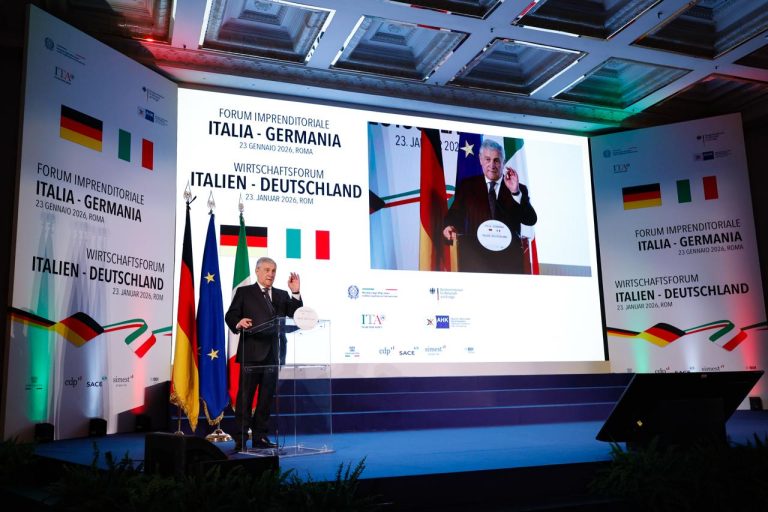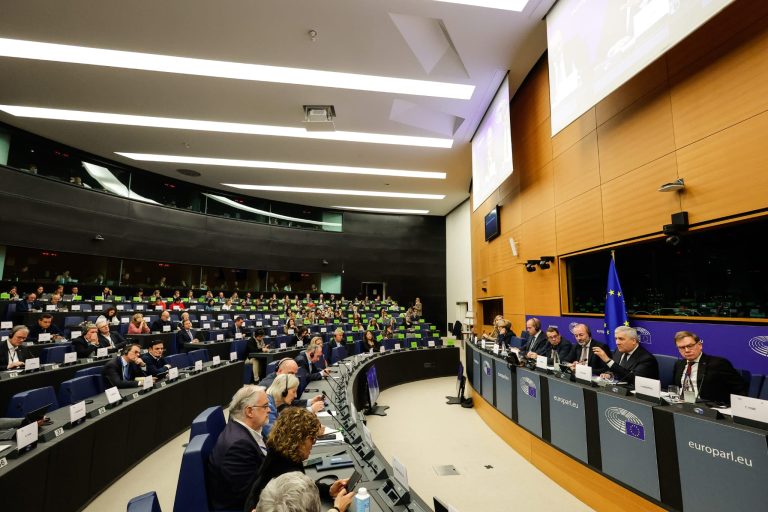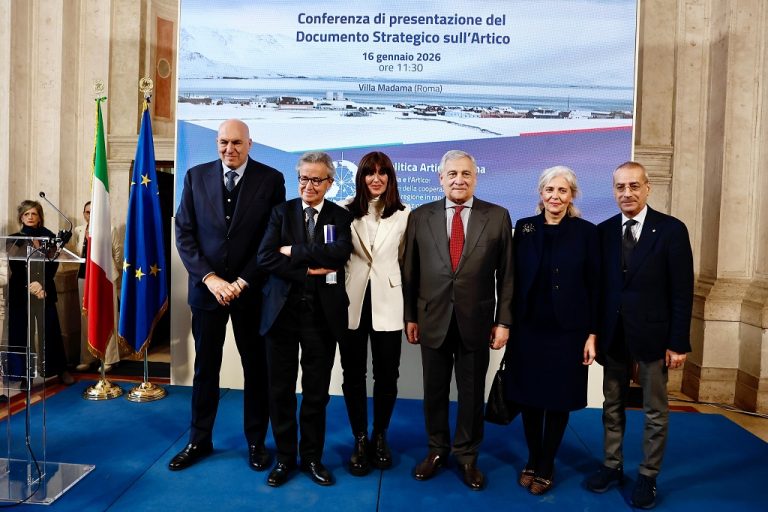The Minister of Foreign Affairs, Antonio Tajani, will be on a mission today to the Principality of Monaco and France.
In Monaco, the Minister will meet with Prince Albert II and the Monégasque Minister of Foreign Affairs, Isabelle Berro-Amadeï. “The state of relations between Italy and the Principality is excellent. We will further strengthen our solid ties, starting with economic and cultural cooperation. We will also discuss the large and increasingly dynamic Italian community residing in the Principality,” stated Tajani.
The Minister will then travel to Nice to attend the second meeting of the Franco-Italian Cross-Border Cooperation Committee alongside the French Minister of Foreign Affairs, Jean-Noël Barrot, with whom he will also hold a bilateral meeting. The Committee’s discussions will focus primarily on connectivity, involving not only the central administrations of Italy and France but also representatives of border regions, as well as metropolitan cities, provinces, and municipalities most affected.
“We must continue along the path we outlined last year at the meeting in Turin, starting with the mobility of cross-border passes. Ensuring connectivity means fostering the development and competitiveness of our territories,” stated Minister Tajani, emphasising how political and technical cooperation between Italy and France is essential to ensuring the full functionality of the Mont Blanc, Fréjus, and Col de Tende road tunnels. The goal is to inaugurate the second road tunnel of the Fréjus and the new Col de Tende tunnel as quickly as possible, removing any potential political, technical, or bureaucratic obstacles to the completion of the works.
The Committee’s discussions will also address maritime connections, which are an integral part of cross-border cooperation, with the aim of strengthening maritime links to Sardinia and Corsica.
During the Cross-Border Cooperation Committee, discussions will also focus on enhancing collaboration between Italy and France in the fields of language, culture, tourism, and healthcare, particularly in the border regions between the two countries. This includes further strengthening initiatives such as bilingual education, cross-border civil service, and cooperation in the university sector.

